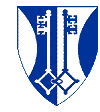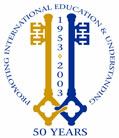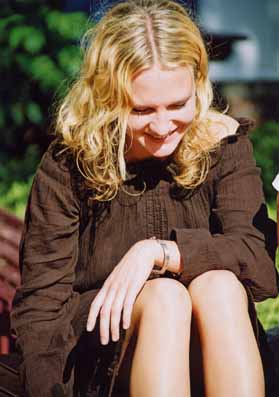|
Students
who have already been accepted on the programme will find these
pages useful.
Getting
ready
By deciding to participate in a Study Abroad programme, you are
choosing the way in which you will encounter and experience a different
culture. At St. Clare's you will translate involvement in a local
community into international experience and global understanding.
Forms to
be returned
- Medical Form
(required)
- Student Covenant
(required)
- Computer
Users' Contract (required)
- Trips Booking
Form (optional)
- Airport Pick-up
(optional)
Please send
us two passport-sized photos in advance.
Things to
Bring Checklist
- Passport
and a photocopy of the information page
- Visa (if
required for programme)
- International
Student Identity Card
- Photocopy
of your Birth Certificate
- Letter of
Acceptance (bring in hand luggage)
- Study Certificate
(bring in hand luggage)
Passports
If you are studying on an overseas programme, you will need a valid
passport. Obtaining a passport is your responsibility. It generally
takes two to three weeks to process a passport application, but
please be aware that the process may take longer, especially during
peak travel times.
Once you receive
your passport, make three photocopies of the information page. One
copy will be for you to carry separately, in case your passport
is lost or stolen. Give the second copy to the Liberal Arts office
on arrival for your file. Finally, leave the third copy at home
with your family. In the event of your passport being stolen or
lost, it will be much easier to obtain a replacement with this information.
A photocopy of your birth certificate is also useful to have under
these circumstances. Back
to top of page
Visas
A visa is written permission to visit a country granted by the government
of that country. Important: If you are travelling on a passport
other than a US passport, you should check with the nearest British
embassy or consulate to determine whether a visa will be required.
You must have your passport before you can apply for your visa.
The web site of the British Embassy in the United States is http://www.britainusa.com/consular/embassy/embassy.asp
International
Student Identity Card (ISIC)
The International Student Identity Card permits you to obtain discounts
at many museums and galleries, to some cultural/performing arts
events, and most importantly, to receive discounts on airline tickets
to and from your destination. Back
to top of page
Luggage and
Packing
- Selecting
your luggage
Take
only bags that are light, easy to carry, and sturdy. If you are
buying luggage for this journey, choose bags that are soft-sided
and made of heavy-grade nylon or similar material. If your luggage
does not have wheels, you might want to buy a small luggage carrier.
The most useful set of luggage might include one large suitcase,
one smaller bag or backpack, and one shoulder-type bag.
- Packing
Remember to pack with the realisation that you will be carrying
these bags around with you when you get off the plane and you
will be carrying them if you travel after the programme. Keep
in mind that storage space is limited, so keep packed luggage
to a minimum. Be sure to lock all luggage, and do not pack valuables
(cameras, money, jewellery, items with sentimental value, etc.)
in checked baggage.
- Luggage
Restrictions
All airlines have restrictions on the size, weight, and number
of luggage items that you can take without incurring additional,
and significant, expense. Most airlines allow two checked pieces
of luggage and one small carryon piece, which will be placed under
the seat or in the overhead locker. Check with your airline for
specific information on luggage restrictions.
- Airline
Security
Remember that airline security is very strict. Make sure that
you read your airline security information and pack your luggage
carefully. Avoid packing items (such as knives, scissors, electrical
items, etc.) which might be confiscated at check in.
Back
to top of page
Determine
your budget for the semester
You (and your parents) will find it helpful if you put together
an estimated budget for your semester. Your fees include tuition
and housing, but usually not meals as most Liberal Arts students
opt for self catering accommodation. Remember to put aside additional
money to cover personal expenses, stationery and some textbooks.
Currency
The currency in the UK is called the Pound Sterling (100 pennies
= £1). Consult your local bank or the Internet for up to date
rates of exchange.
Books
While the Academic Resources Centre at St Clare's has substantial
holdings covering all of your courses, you will be required to purchase
some essential course books. For some subjects there will be one
textbook, for others there will be two or three, and for others
none at all. The total expenditure should not exceed $150.
Meals/groceries
You can expect to spend considerably more in the beginning as you
adjust to the currency, take your time to find the good shops, restaurants,
etc. You can eat in cheaply - say for £30 you can buy all
your groceries each week. However, you will probably want to eat
out from time to time and this costs anything from £6-20.
Back to top of page
Socialising
This obviously varies from person to person, depending on how frequently
you want to go out. You can expect to pay £5 to go out to
a film, £5 to get into a club, £3/£4 for a lunchtime
sandwich, £1.50 for a decent cappuccino.
Travel
A weekend away out of the country will cost on average £300
- though there are subsidised College trips which will work out
much cheaper. London is just 50 miles from Oxford so you will have
very easy access to one of the most cosmopolitan cities in Europe
for a return bus fare of just £7.
You may also
wish to purchase a bus pass for travel throughout the city (students
living at Hampden Manor are automatically provided with one). Unlimited
travel costs about £9.00 per week, with better deals for monthly
or three-monthly passes.
Stationery/photographic
film
While you don't want to load yourself down unnecessarily these items
are far cheaper in the US. A roll of film costs about £5,
a writing pad about £1.50.
Miscellaneous
Increasingly
students are using mobile phones (cellphones) while in England.
They cost about £30, and there are pay-as-you-go deals where
you buy a certain amount of credit for outgoing calls and incoming
calls are free. People find this a good way to keep in touch with
each other and home.
Clothes and
CDs are much more expensive in the UK than in the US.
Women's haircuts
cost about £30 in a reasonably good salon, men's haircuts
cost about £10.
We also recommend
that you put a few hundred pounds to one side in case of emergencies,
or for those items you just can't leave behind on a shopping trip.
Back to top of page
Health issues
Visit your doctor
You are required to have your doctor complete a medical questionnaire
which we ask that you send to us in advance of your arrival. For
your safety and well being, it is vital that you inform us of any
physical, emotional, or psychological difficulties or special needs
you may have. On the other hand, if you are simply nervous about
experiencing a different culture, do not worry. You are not alone.
Call the Liberal Arts office to talk about your concerns.
Obtain copies
of your prescriptions
You should bring copies of prescriptions for any medications you
may need and for glasses or contact lenses. We recommend that you
bring an adequate supply of whatever you may need while abroad.
Any medications you bring should be in the original, properly labelled
containers. It is advisable to get a letter from your doctor to
verify that the medication is for you and is for a specific condition.
This should avoid any difficulties in Customs when you arrive. If
you wear glasses or contact lenses, bring an extra pair/lenses in
case you damage or lose your original pair. Back
to top of page
Health services
Students studying in the UK for longer than 6 months are eligible
for free National Health Service (NHS) treatment. All students receive
free emergency treatment. If you have enrolled on a course for longer
than 8 weeks, we will arrange for you to register with a doctor
at the Banbury Road Medical Centre, which is near the Banbury Road
campus. The health centre charges £25.00 for a consultation
with a doctor and an additional £8 if he writes a prescription.
If you need medicine the doctor will give you a prescription which
you need to take to a chemist. You have to pay for the medicines
and £6.20 for each prescription.
St. Clare's
also has a nurse who runs a surgery every weekday during the academic
year and the summer months.
If you are from
a country within the European Economic Area (EEA) and studying at
St. Clare's for less than 6 months, you will need to bring the E128
form with you from your own country. You must produce an E128 form
or passport to obtain medical treatment and to claim back any medical
expenses which you have had to pay whilst you are here.
St. Clare's
Travel Insurance
The Travel Insurance Fee, which is mandatory, includes insurance
cover for travel directly to and from St. Clare's and whilst at
St. Clare's, including mid-semester breaks. The cover for the journey
to and from is limited to 48 hours in each direction. There is no
cover for the Christmas and Easter breaks other than the journeys
to and from St. Clare's. It covers trips organised by St. Clare's,
including those involving outdoor activity pursuits in the UK. For
full details of the extent of the cover and the exclusions see the
Certificate of Insurance, the Summary of Cover and the Frequently
Asked Questions document, which are available from Admissions.
Back
to top of page
|


